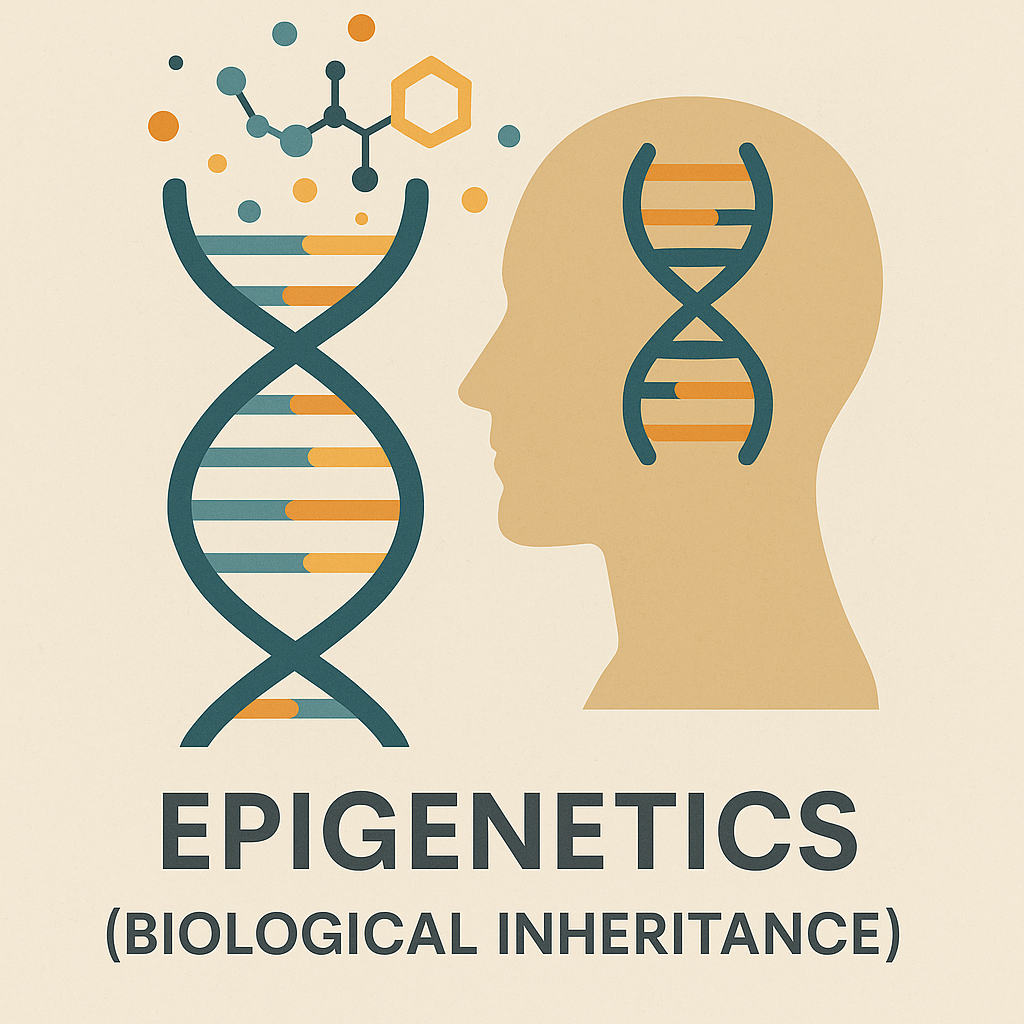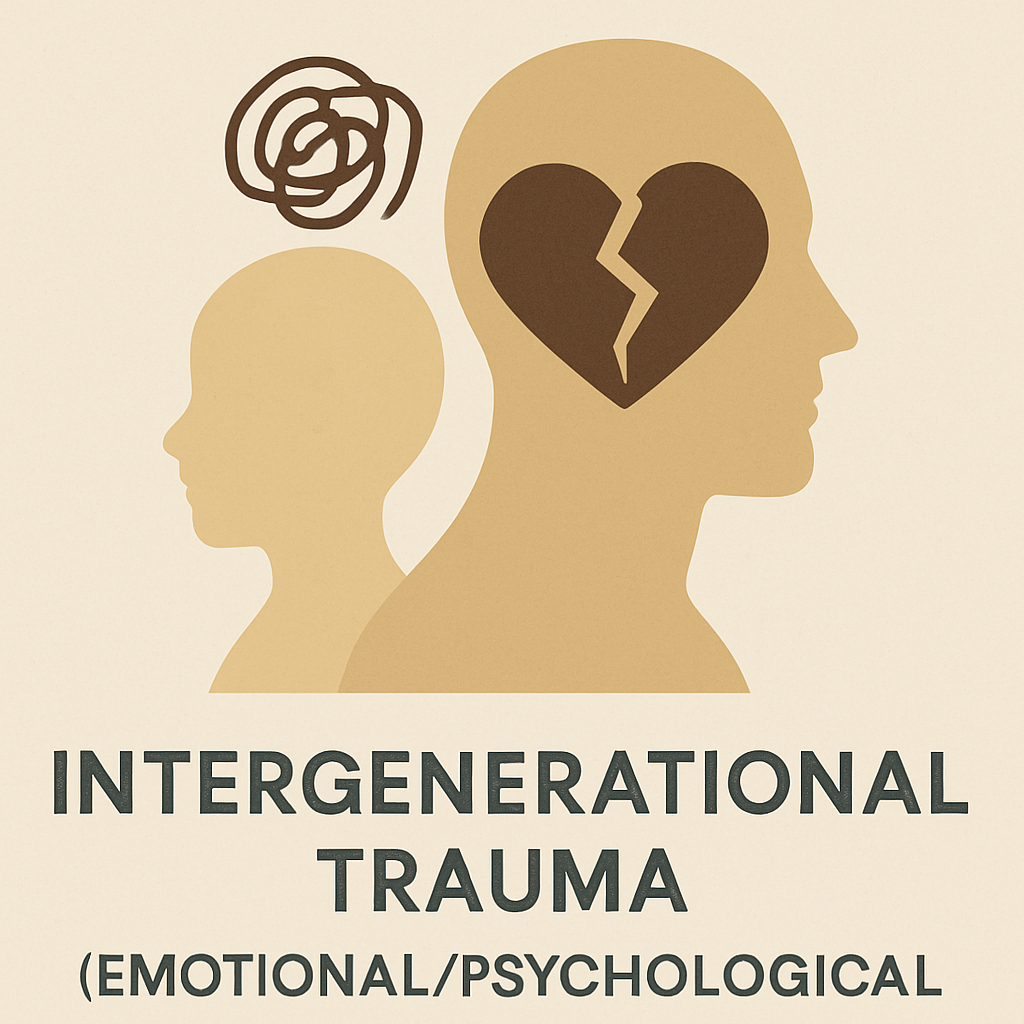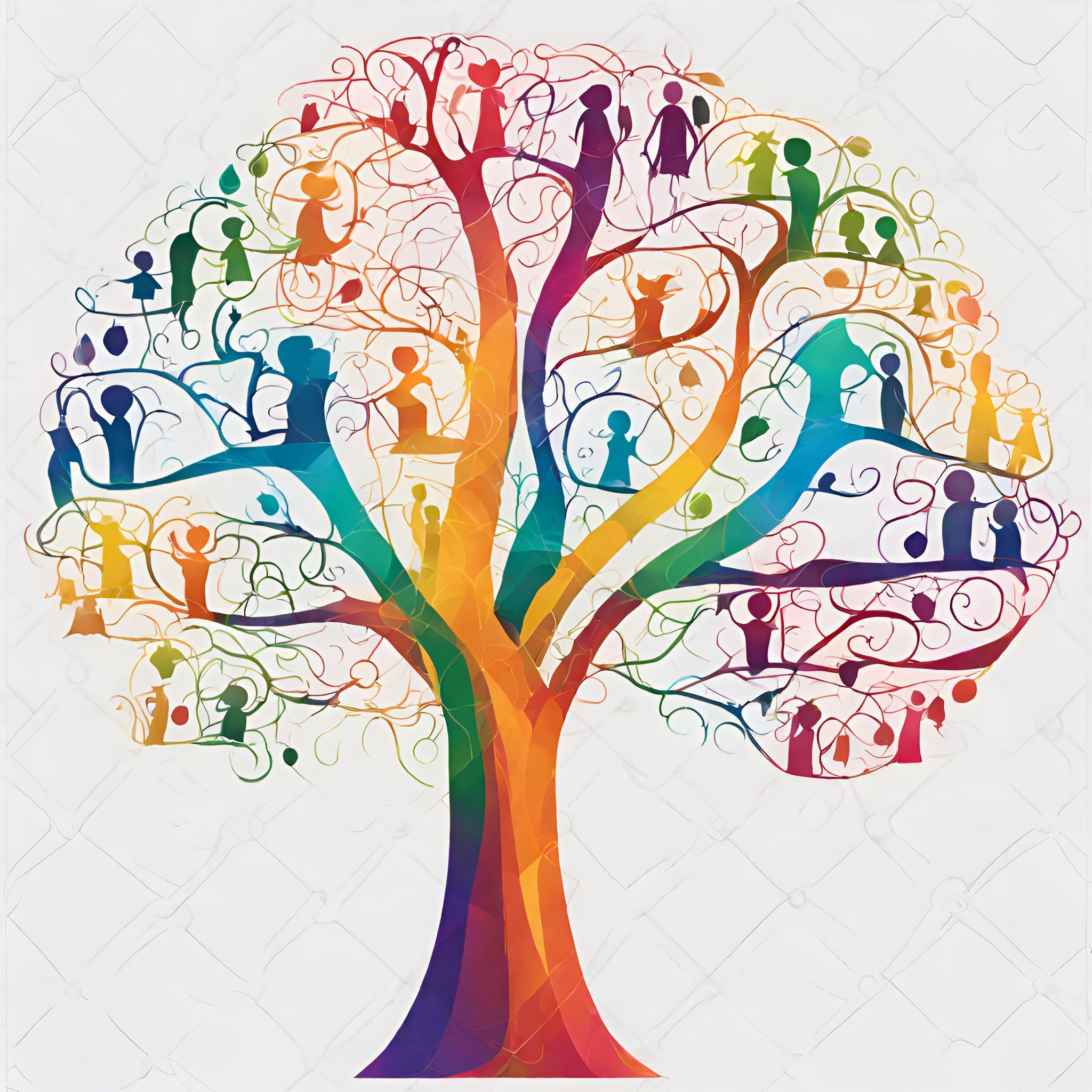Inheritance
Epigenetics (Biological Inheritance):
Epigenetics refers to the way genetic expression can be influenced by environmental factors, experiences, and behaviors across generations. While the DNA sequence remains unchanged, chemical changes to the DNA or associated proteins
can affect how genes are turned on or off. This biological inheritance can result in certain traits, predispositions, and susceptibilities being passed down through generations. These changes can have significant impacts on physical
health, disease resistance, and even responses to stress, providing a direct link between our ancestors’ experiences and our own biological makeup.


Intergenerational Trauma (Emotional/Psychological Inheritance):
Intergenerational trauma refers to the transmission of emotional and psychological effects from one generation to the next. This inheritance can manifest in many ways, such as patterns of anxiety, depression, addiction, and fear
that are passed down unconsciously within families. Often rooted in traumatic events experienced by previous generations, these emotional imprints can affect how individuals perceive themselves and interact with others. Healing from
intergenerational trauma involves acknowledging these inherited emotions, breaking negative cycles, and creating healthier patterns for future generations.
Ancestral Connection (Spiritual and Relational Inheritance):
Ancestral connection speaks to the spiritual and relational bonds we share with our ancestors, transcending the physical and emotional realms. This form of inheritance includes the wisdom, values, traditions, and cultural practices
that are passed down through generations. It also encompasses the deep, often unspoken connection we feel to our lineage, which can influence our sense of purpose, identity, and belonging. By honoring and connecting with these ancestral
ties, we can heal spiritual wounds, rediscover lost traditions, and foster a sense of continuity that strengthens our connection to both the past and the future.
